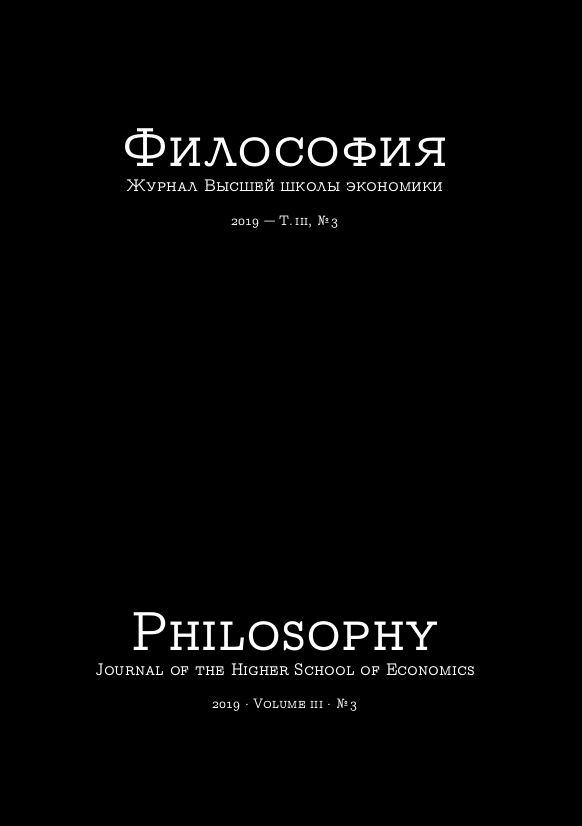Hillary Putnam's Internal Realism as a Pragmatically Justified Conception
Abstract
This article is an attempt to find a new way of justifying H. Putnam's conception of internal realism and, more broadly, any conceptions that use nontraditional (weakened) forms of realism. The main idea of the article is that the adoption of this or some similar conception is already justified by the pragmatic need to preserve epistemology as a scientific discipline and social practice. In order to show this, in the first half of the article we make a brief excursion into the history of the development of the concept of justification in philosophy in general and in the philosophy of pragmatism in particular and reveal the essence of the dispute of W. Clifford and W. James about the ethics of belief. Then we trace the development of this dispute in the later pragmatism and reveal the ethical background of the modern dispute between realists and anti-realists, based on the discussion of H. Putnam and R. Rorty around the notion of truth. In the second half of the article, we articulate a pragmatic argument in favor of Putnam's realistic position and outline the basics of his conception of internal realism. In conclusion, we reveal the pragmatic significance of Putnam's conception as a means of preserving epistemology in its classic normative form, while being freed from many overly optimistic and tendentious assumptions of the classical period.






